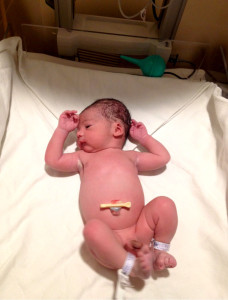While end-stage kidney disease is associated with a high rate of infertility likely related to hormonal changes and anovulation, patients undergoing renal transplantation resume menstrual cycles and fertility in approximately 6 months.
Contraception is critical post-transplant due to potential fetus malformations with Mycophenolate Mofetil (MMF), one of the anti-rejection medications commonly used in transplantation. For patients interested in getting pregnant, it is essential to plan ahead of time. Best timing of pregnancy is unclear, though waiting at least 1 year after transplant is generally recommended to ensure stable renal function.
Patients with poor kidney function (eGFR<50ml/min) or protein in the urine (>500mg/day) carry a worse prognosis and a higher risk of progressive deterioration of kidney function during pregnancy.
Discussion with your treating physician is essential since it will be necessary to change your immunosuppression. Conversion from MMF to azathioprine (AZA) must be done at least 2 months prior to conception.
Most common immunosuppressive regimens used during pregnancy are tacrolimus or cyclosporine with azathioprine +/- prednisone. The incidence of birth defects in a recent cohort was similar to the proportion in the general population of 3–5%. A few cases of successful in vitro fertilization (IVF) have been reported as well.
Kidney transplant patients carry a higher risk of pre-eclampsia (~30%), prematurity (~35 weeks; ~50% of cases), gestational diabetes (~8%) and low birth weight (~25%). Despite that, more than 90% of pregnancies result in live births. Other complications include hypothyroidism and osteoporosis. Approximately 30% of patients also suffer deterioration of kidney function after pregnancy. Outcomes are worse in patients with poor kidney function, comorbid conditions such as diabetes, history of rejection and need for in-vitro fertilization.
Additional recommendations:
– After conversion to AZA, you must monitor your blood tests frequently.
– Start folate-containing multivitamin.
– Check your thyroid (TSH) in each trimester and urine culture monthly once pregnancy has been confirmed.
– Stress dose steroids are recommended during labor (e.g. hydrocortisone 50mg during active labor).
– There is paucity of data regarding breastfeeding and consequences of immunosuppressive drugs in the fetus. Most immunosuppressive drugs cross the placental barrier, and breastfeeding is in general not recommended.
References:
Bramham et al. CJASN 2013; Wyld e al. Am J Transp 2013; Gill et al. Am J Transp 2009
Rahamimov et al. Transp 2006; Deshpande et al. Am J Transp 2011; Anderka et al. Am J Med Genetics 2009

